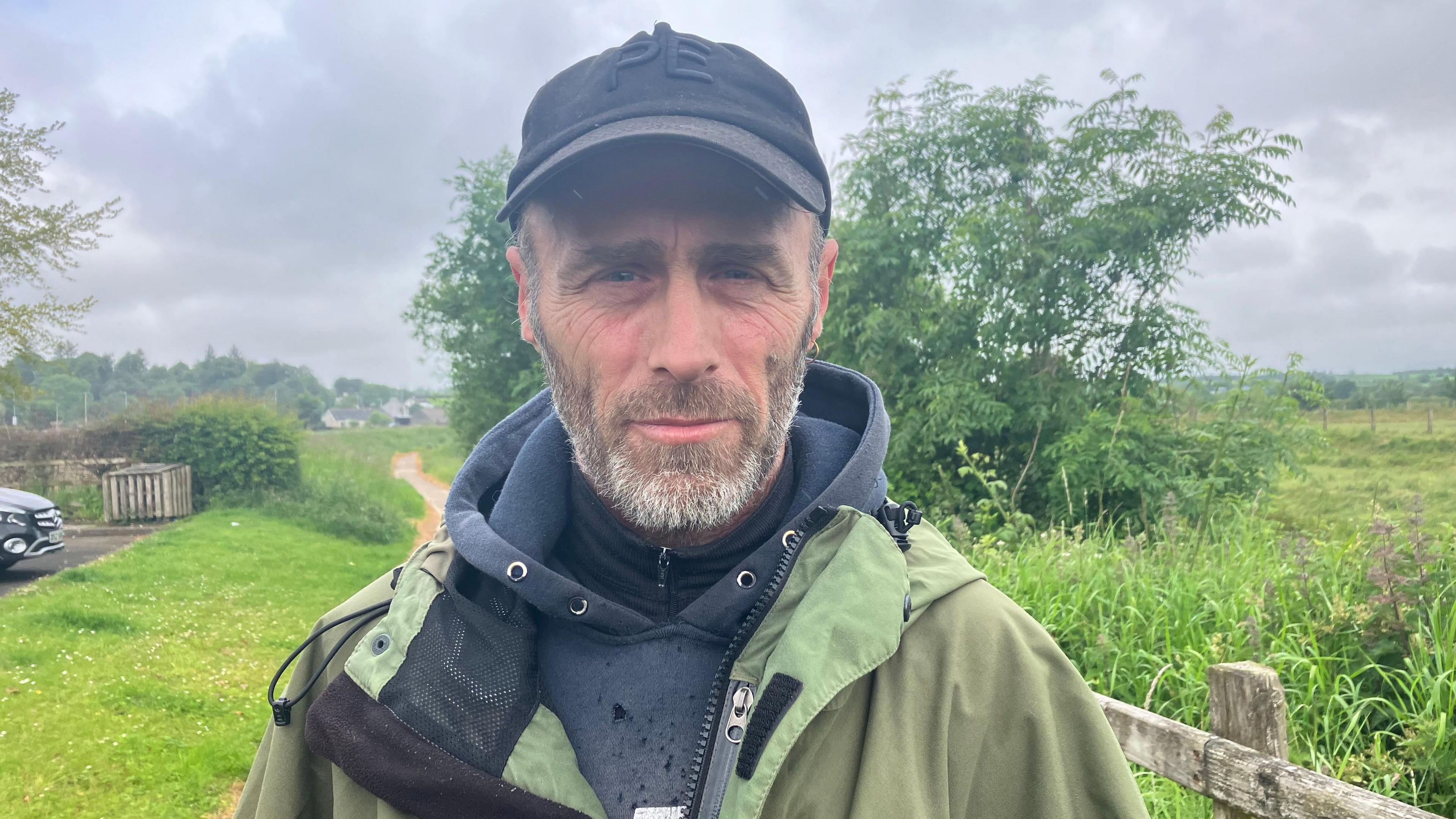'Devastation' as hundreds of fish die in River Roe

Angler Jason McClean said the what happened needs to be fully investigated
- Published
Hundreds of fish have been killed along the River Roe in County Londonderry.
The Loughs Agency confirmed 700 juvenile salmon and trout died in the incident at Burnfoot, between Limavady and Dungiven, on Friday evening.
A spokesperson said its priority was to "identify the pollution source" and minimise further damage.
An angler told ┤¾¤¾┤½├¢ News NI the impact on the river could be significant.
"We're all pretty devastated by what's happened over the weekend - we're still assessing the damage," said Jason McClean.
"We don't know the cause and that needs to be fully investigated."
The Loughs Agency spokesperson confirmed that the main River Roe "remains unaffected".
The chairperson of Roe Angling Limited told ┤¾¤¾┤½├¢ News NI that "it's a very, very substantial fish kill".
'Major impact'
Eamon Mullan from Roe Angling
Eamon Mullan added that the tributary is a spawning area for salmon and a nursery area for juvenile fish, both salmon and sea trout.
He said the fish kill would have a ÔÇ£major impactÔÇØ on the tributary for some years to come and that agency staff have not yet been able to identify the source.
ÔÇ£They were looking for evidence to see what type of material might have caused the problem and so far they havenÔÇÖt been able to determine that,ÔÇØ Mr Mullan said.
He added that agency staff will be on the river again on Monday to try to identify the source of the kill.
Jason McClean believes that if it was a pollution incident then whoever was responsible must face severe sanction as the current fines are not tough enough to deter people from polluting rivers.
Dead fish were found on Wednesday evening on a stretch of the Glenavy River
'Distress'
The River Roe fish kill comes after reports on Wednesday that hundreds of fish could have been killed by pollution in the Glenavy River in County Antrim.
The Northern Ireland Environment Agency (NIEA) received a report on Wednesday that several miles of the river - part of the Lough Neagh catchment - was polluted and that there were fish in distress and struggling to breathe.
About 30 dead fish were identified, but concerns were raised by local anglers that the number could reach 200 or 300 at that particular stretch of river.